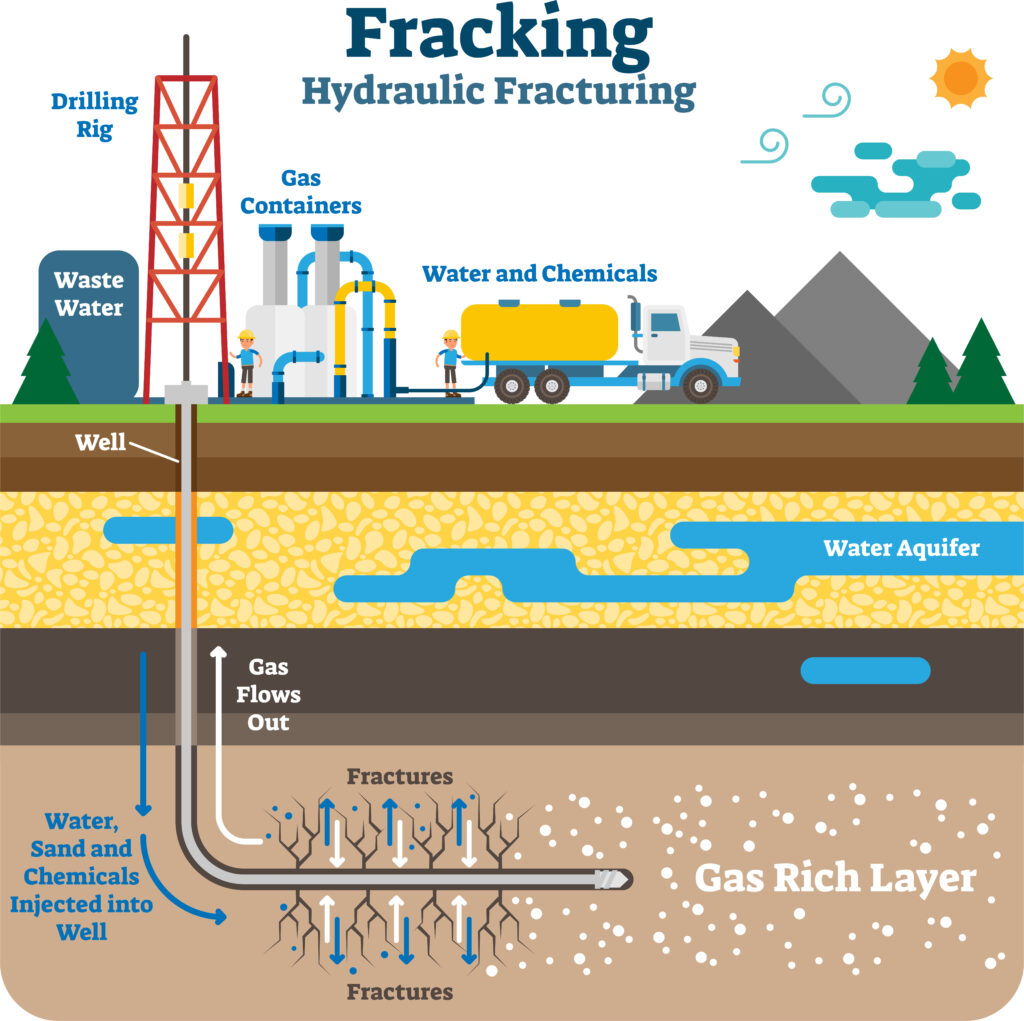The Association Between Hydraulic Fracturing (fracking) and Health Outcomes
Hydraulic fracturing, also known as “fracking”, is a technique for recovering gas and oil by drilling and releasing a high-pressure mixture of water, sand and chemicals to release the gas inside a rock layer. This drilling technique has been used in Colorado since the 1970s, but received more attention in the early 2000’s, as Colorado became one of the most heavily fracked states in the country.

Partnership
This increase in production has raised concerns regarding the process of fracking and the impact it may have on drinking water, air pollution and health and climate on the whole. In 2017, the University of Colorado Denver partnered with Northwestern to obtain more health information that could assess the potential health effects associated with fracking. What makes this particular study unique is that no other study to date has used data from an All Payer Claims Database (APCD) to evaluate health outcomes related to fracking. Instead, most studies related to the impact on health from fracking have utilized information on patient health from Electronic Medical Records (EHRs) or a disease registry, which limits data to a specific patient population. With the Colorado All Payer Claims Database (CO APCD), researchers can evaluate a much larger patient population, that encompasses the majority of people in Colorado (over 70% of medically insured), including those covered by private and public health insurance payers.
Using the Data
Most, if not all, fracking data contains information on each well that includes latitude and longitude coordinates, dates of spudding and production, total vertical depth, volume of natural gas produced, and the number of production days. The researchers on this project used a spatiotemporal model, which collects data over a specific time and location, allowing them to assess links between CO APCD and fracking data. By linking the two data sources, they were able to evaluate whether a Colorado residents’ proximity to a well pad increased the prevalence of irregular health conditions and whether prevalence of these conditions increased based on the volume of gas or oil produced from a specific well.
Since Colorado is one of the most heavily fracked states, it is important to better understand the potential health effects posed by living near fracking wells. Results of this study will help determine whether fracking leads to adverse health outcomes and will inform the discussion around the risks of exposure and what needs to be done to improve health outcomes and lower costs.

